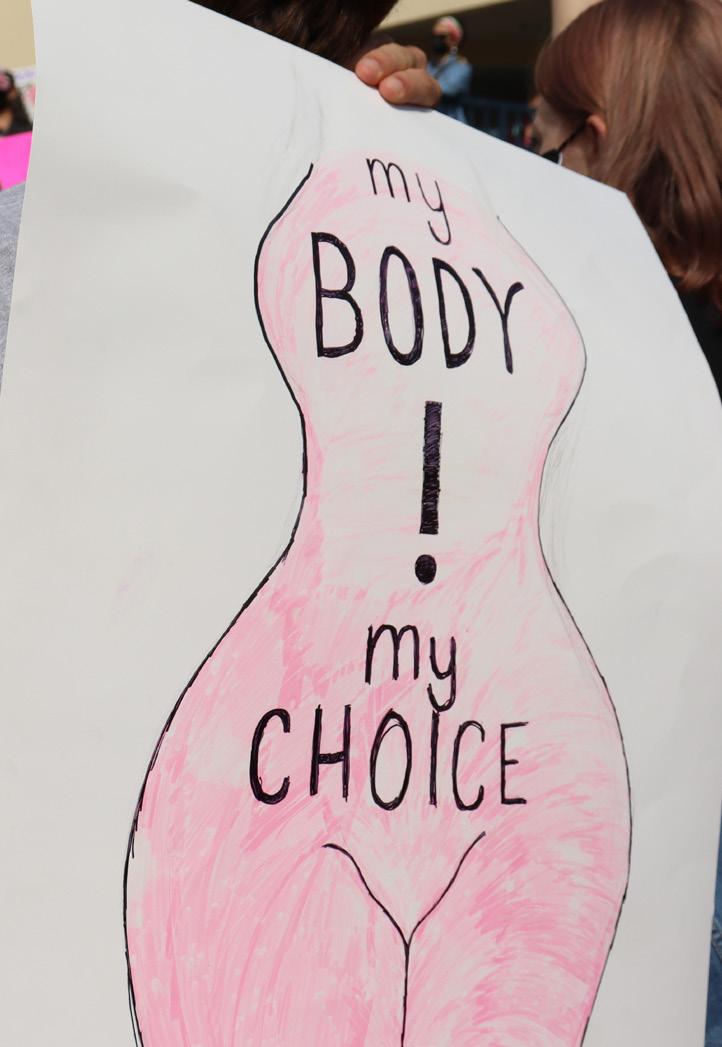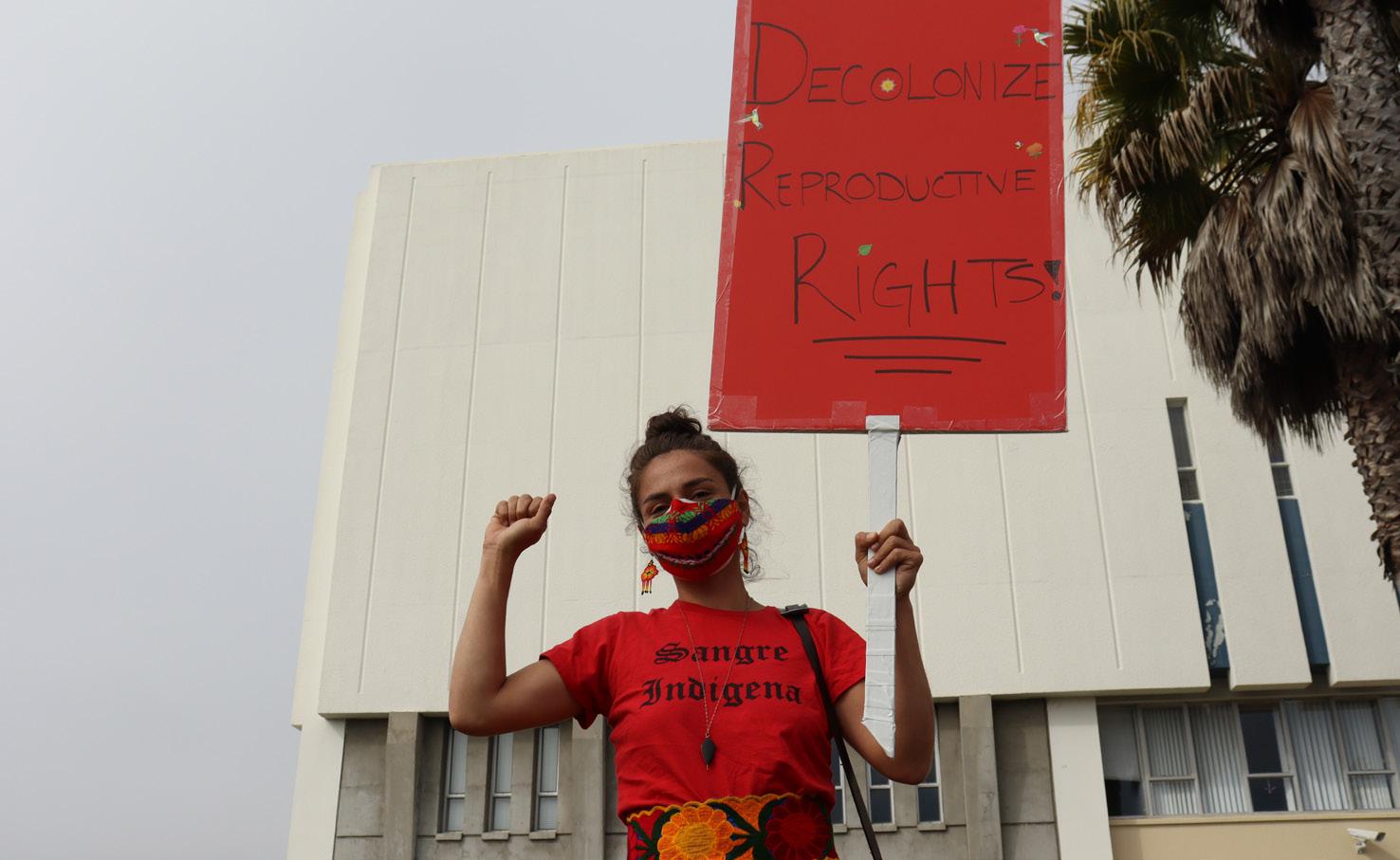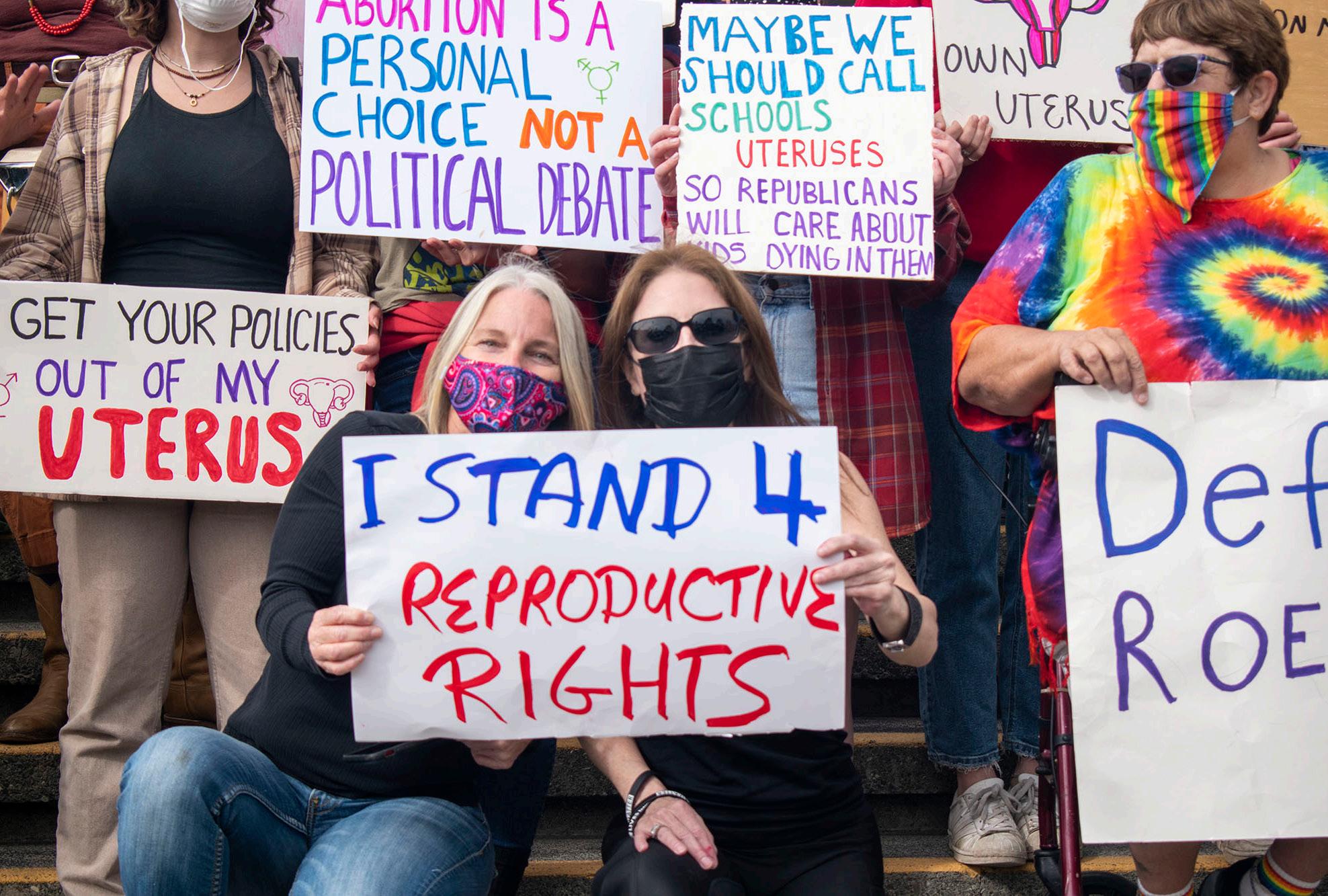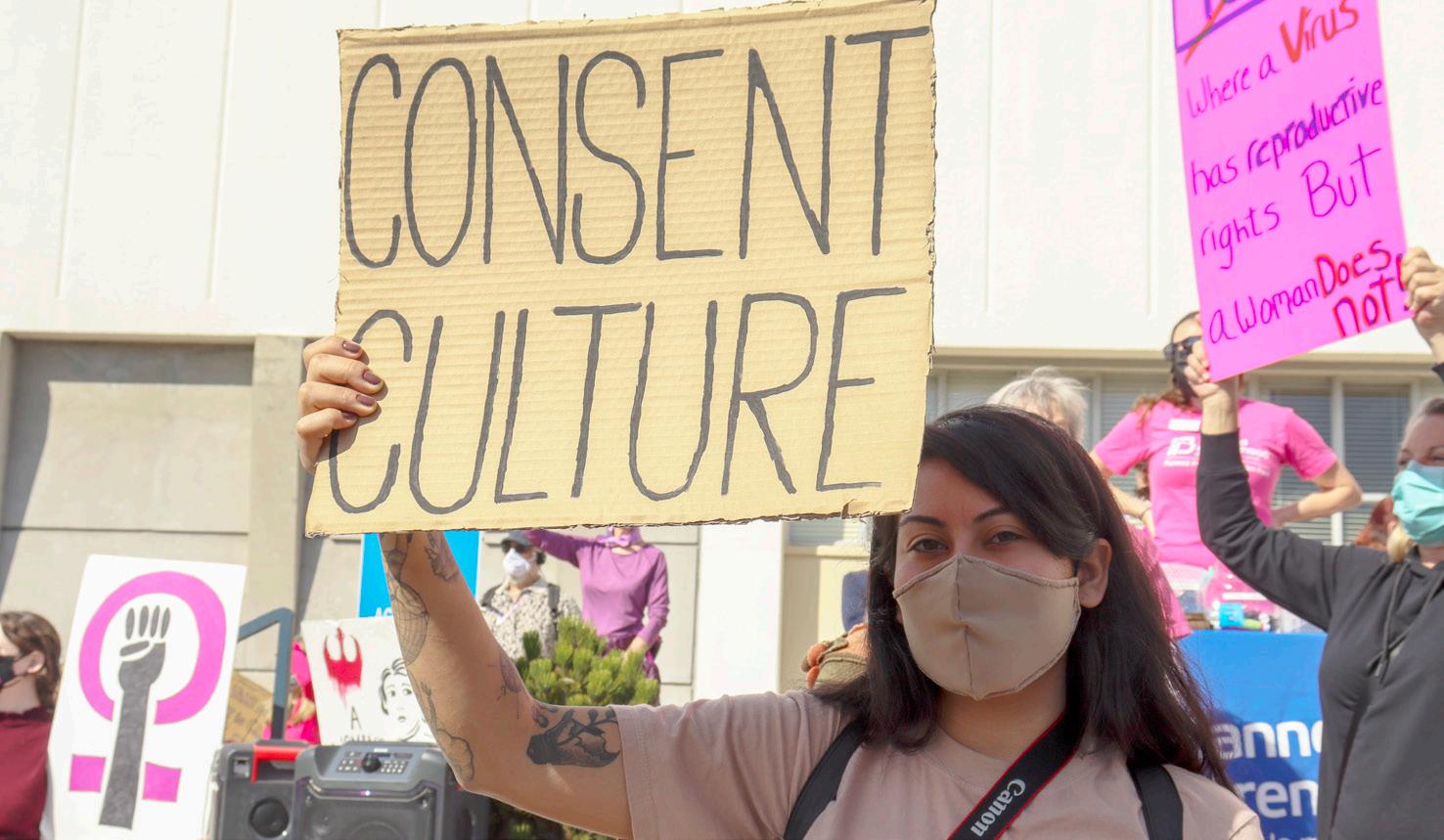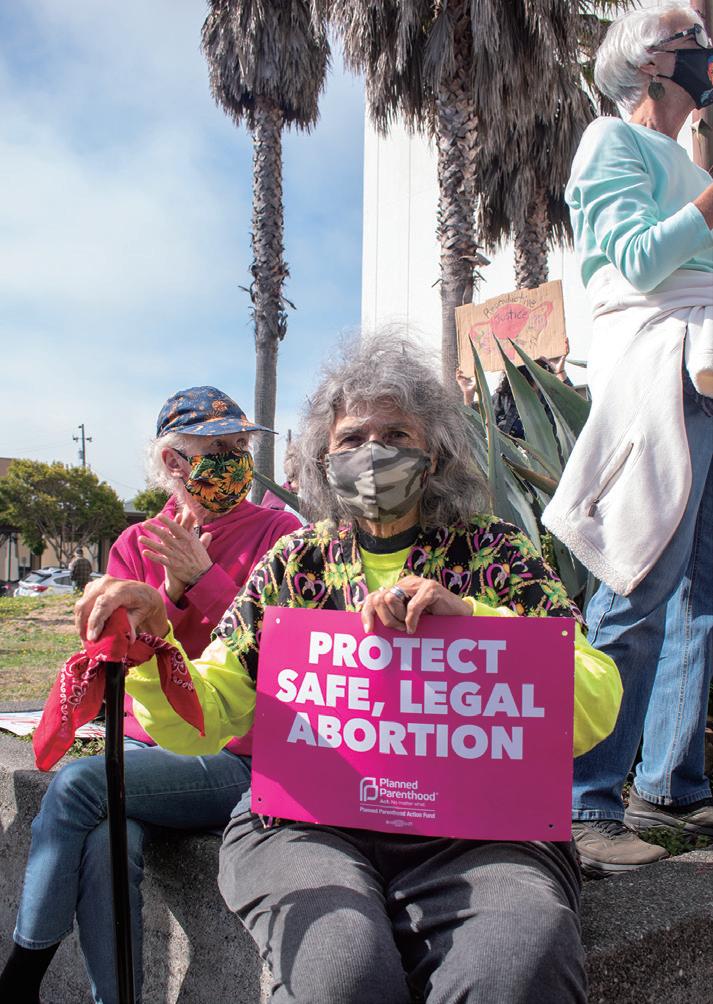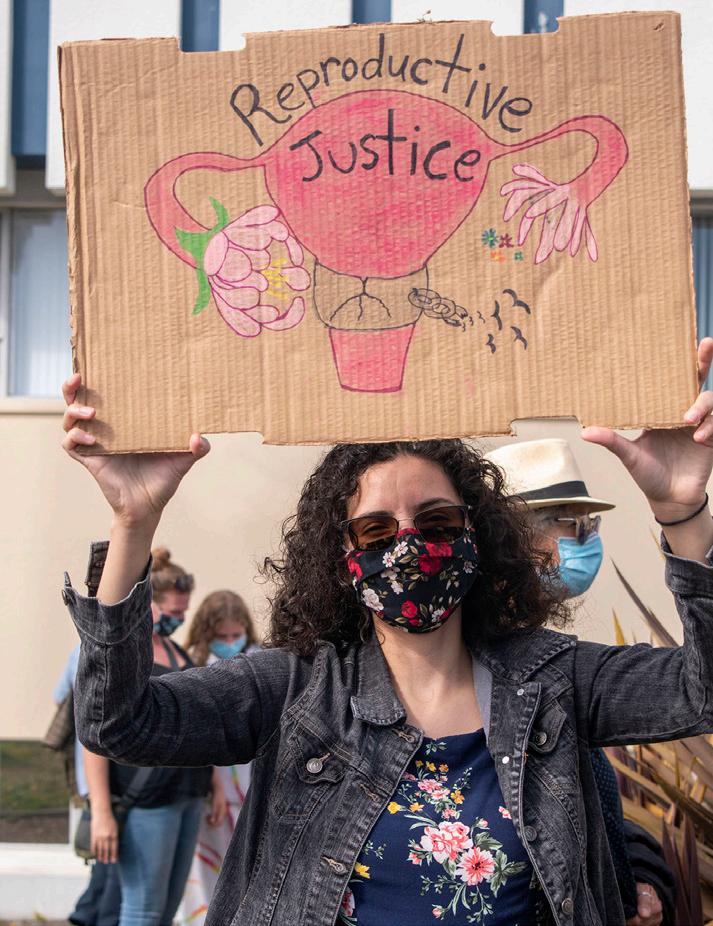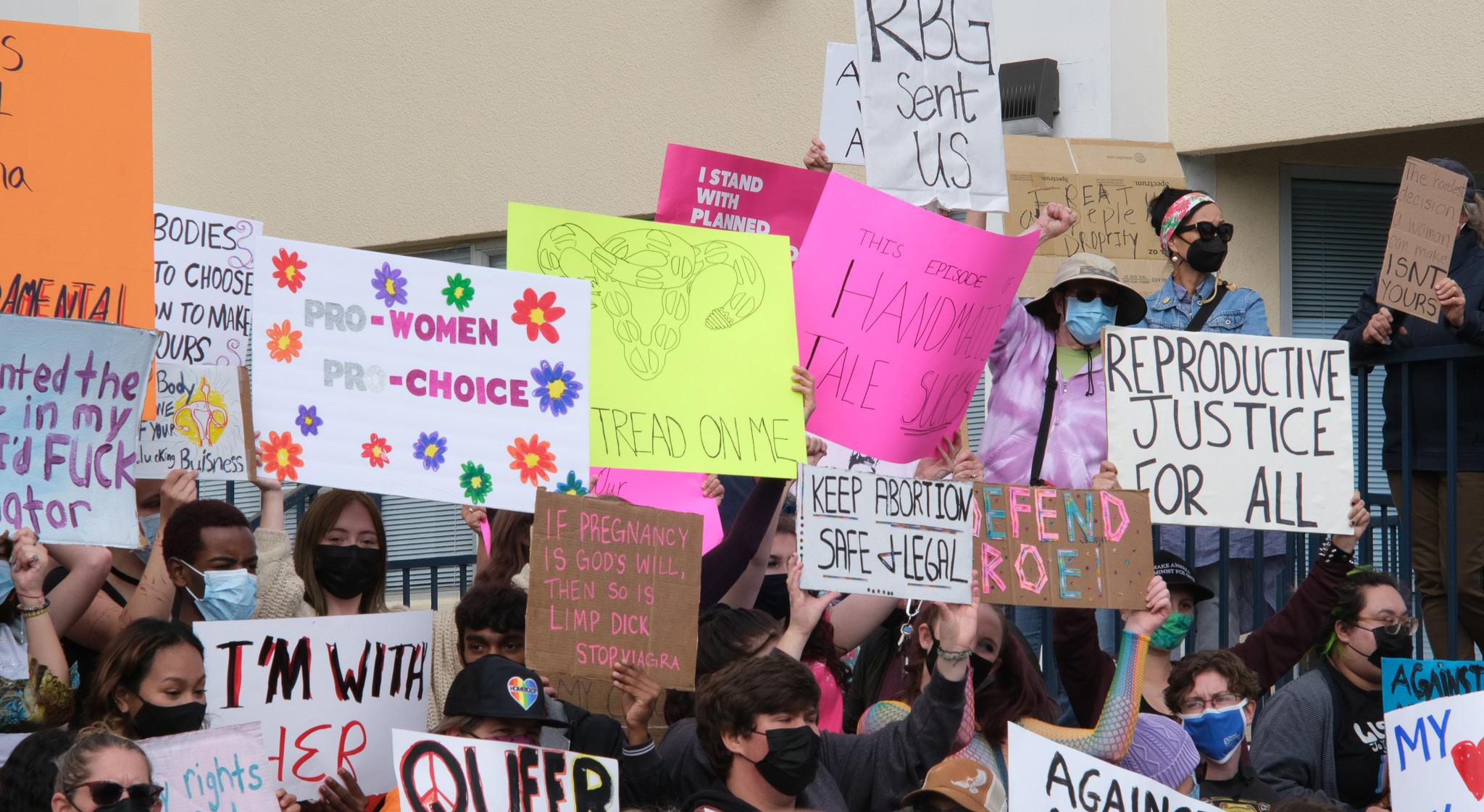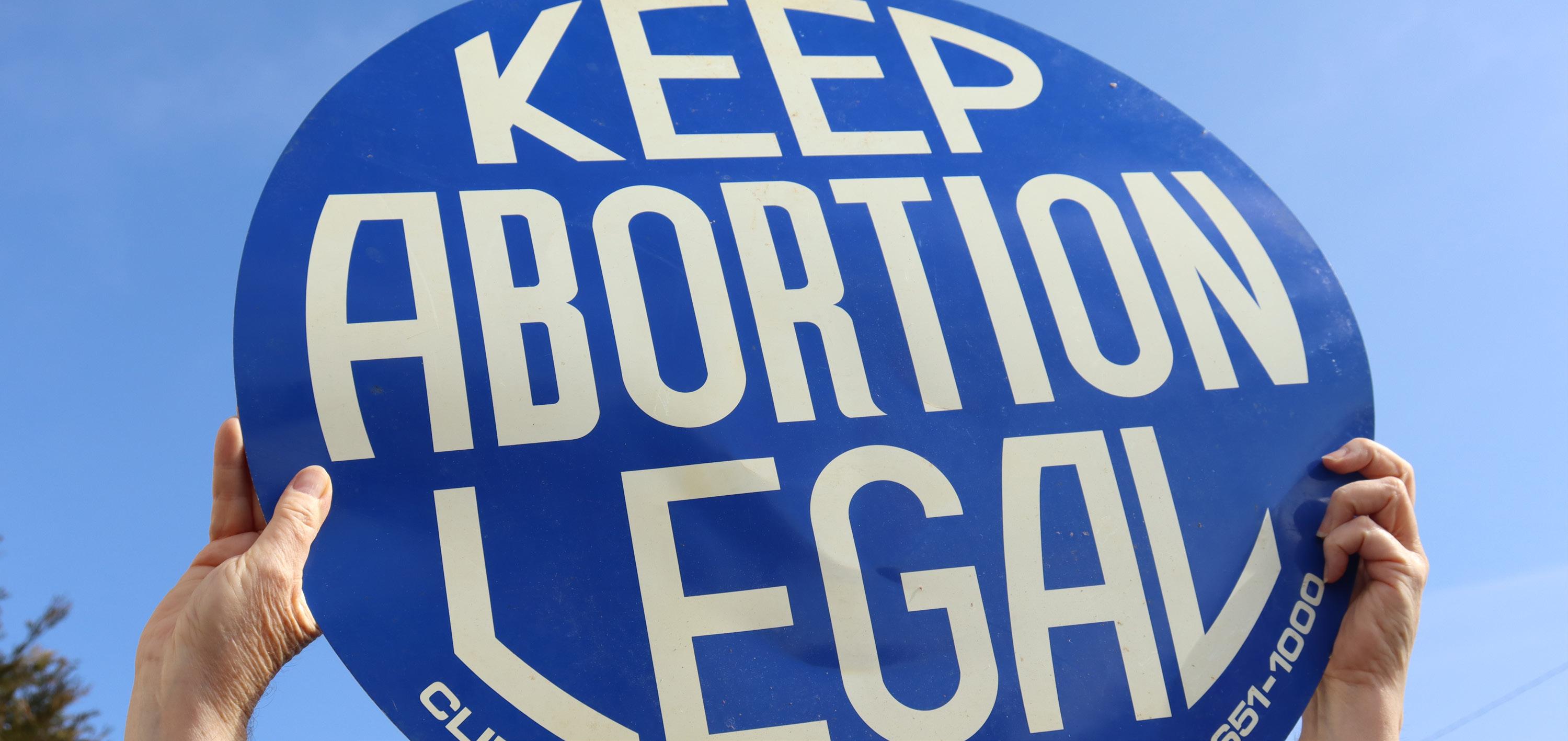
4 minute read
Abortion laws and local re
from October 2021
by El Leñador
Texas restricts abortions, California’s laws unchanged
by Danielle Hendrickson
Advertisement
On Sept. 1, Texas Governor Greg Abbott signed S.B.8, one of the country’s harshest abortion laws. It prohibits abortion procedures once there is a heartbeat. This occurs around six weeks into a pregnancy, a time before many know they are expecting.
What is known as the “Heartbeat Bill,” comes 49 years after the landmark case Roe v. Wade which allowed women in the United State to legally and safely obtain abortions.
“All these old men are making the laws with their outdated views,” said Isabela Acosta, body politics educator at Humboldt States Women’s Resource Center. “Why is it anyone’s business what I do with my body? We need to separate church and state.”
The signing of this new legislation opens up the possibility of it happening in other states around the country. Florida, Arkansas, and South Dakota are already discussing similar bans like S.B.8, according to Planned Parenthood.
Cases where women were impregnated as a result of incest or rape are included in the new law. Although, some exceptions are made for medical emergencies according to the Texas Health and Safety Code.
This new law also allows for private citizens to be whistleblowers for those assisting women in getting abortions. Whether the individuals are providing financial assistance to get the procedure done or driving them to a clinic, they are now in danger of getting sued for helping commit an abortion as stated in S.B.8.
Abortion ensures that people can control their own bodies, lives and futures. It is an essential health procedure that is critical for racial, gender and economic justice. These limitations disproportionately affect people of color, immigrants, people with disabilities and those with low income.
Kiara Silva is a Humboldt resident who has been a longtime proponent of abortion rights. She received one herself back in 2019. Silva plans on having children once she is mentally, emotionally and financially ready.
“I couldn’t have given the child the best life possible,” said Silva. “How would that have been fair for either of us?”
An analysis done by Guttmacher Institute, reports that the most abortion restrictions introduced in a single year were in 2021. They also report that by age 45 nearly a quarter of all women in the United States will have had an abortion. Abortion laws come down to how the government is trying to police and patrol
On Oct. 2 in Eureka a women’s reproductive rights was held and many participants joined together sharing signs with messages. | Photo by Karina Ramos Villalobos
women’s bodies. California has yet to implement any new abortion laws and currently still provides resources for women who seek abortion resources.
Planned Parenthood is a trusted and safe space for many reproductive concerns. A widespread belief among many is that all Planned Parenthood does is perform abortions. When in reality that is just a small percentage of what they do. They offer STD checks, cancer screenings and LGBTQ+ services, just to name a few. Bryan Fiallos has worked at Planned Parenthood in Eureka for over a year as a reproductive health specialist. Part of his duties include assisting with abortions.
“Regardless of politics and what people’s beliefs are in abortion, it is the most beautiful thing to see a person with a cervix come in and have a safe and accessible procedure done without judgment,” Fiallos said.
Fiallos tries to make his patients feel as safe as possible and always comes from a loving place and reminds them to never be afraid to ask for what they need. These changes are bold efforts, especially while there is a global pandemic. Regardless if it is for health or personal reasons, the only one in charge of deciding is the person who is pregnant.
“For some folks, it’s a hard decision. For some it’s a very simple decision,” Fiallos said. “No matter what decision you make, that was your right decision the moment you decided that. Whatever feelings come up before, during and after are completely valid.”
Abortion Resources in Humboldt
Eureka Health Center offers the abortion pill and in-clinic abortions.
In-clinic abortion procedures are available up to 13 weeks and 6 days after the last menstrual cycle. After the procedure, one must follow up within 1-2 weeks to ensure the pregnancy was successfully terminated.
The pill is available up to 10 weeks after the last menstrual cycle. Both services are by appointment only. In circumstances where the pregnancy is past what can be treated in-clinic, Planned Parenthood can connect those with resources for other abortion services.
The center can be contacted at (707) 442-5700.
Reproductive Rights Protest in Eureka
by Cash Rion
In the wake of Texas passing the Heartbeat Act, effectively outlawing all abortions in the state, women across the country have rallied together in protest of the new law. The law, which bans all abortions after a fetal heartbeat can be detected - as early as six weeks - flies in the face of the Roe v. Wade decision.
On Oct. 2, the organization Women’s March coordinated marches across the country to call for the repeal of the Texas law.
In Eureka, Humboldt county residents gathered in front of the Eureka Courthouse with signs and guest speakers in a show of solidarity for women in Texas, calling for action by lawmakers to repeal the new law.
